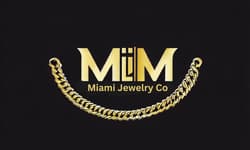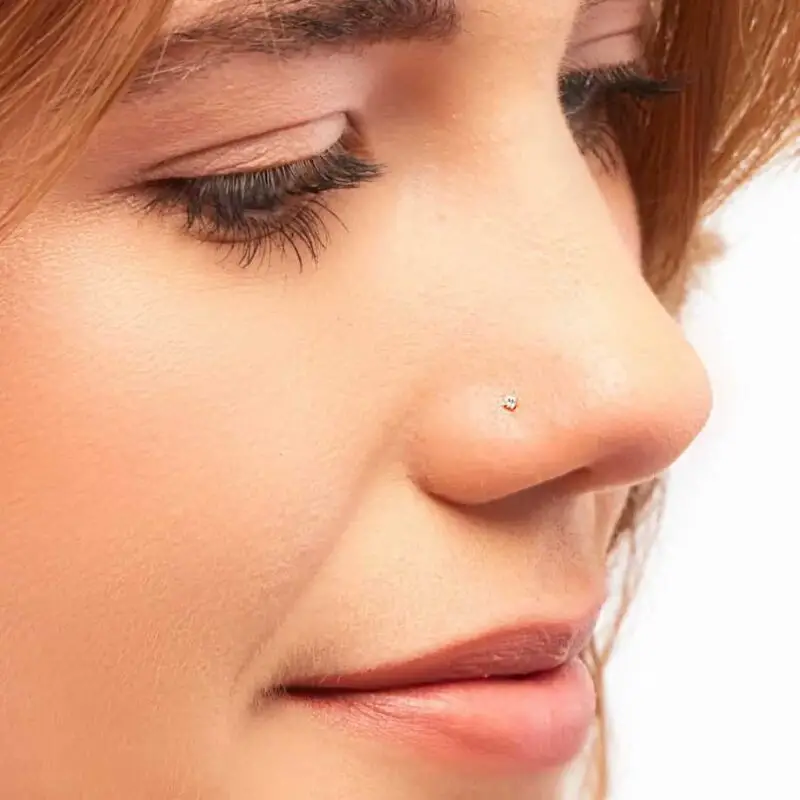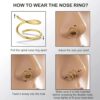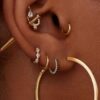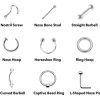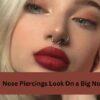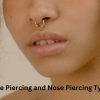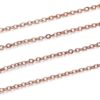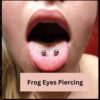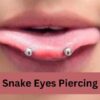Nose Piercing
What is the Best Metal for Nose Rings
Nose rings are a popular form of body modification that can express your personality, style, and culture. But not all nose rings are created equal. The choice of metal can have a significant impact on your health, comfort, and appearance. In this guide, we will help you find the best metal for nose rings by answering some common questions and providing some useful tips.
Contents
- 1 Why Does the Metal Matter for Nose Rings?
- 2 What are the Best Metals for Nose Rings?
- 3 What are the Best Metals for Nose Rings?
- 4 Best Metal for Nose Rings – Comparison
- 5 How to Choose the Best Metal for Your Nose Ring?
- 6 How to Care for Your Nose Ring?
- 7 Metals to Avoid for Nose Piercings
- 8 How to Find the Best Metal for Your Nose Piercing
- 9 FAQs
Why Does the Metal Matter for Nose Rings?
The metal you choose for your nose ring can affect several aspects of your piercing experience, such as:
- Healing time: Some metals are more suitable for new or healing piercings, as they are less likely to cause irritation, infection, or allergic reactions.
- Durability: Some metals are more resistant to scratches, tarnishing, or bending, which can extend the lifespan of your jewelry and keep it looking shiny and new.
- Aesthetics: Some metals have different colors, finishes, or textures that can complement your skin tone, facial features, or personal preferences.
- Cost: Some metals are more expensive than others, depending on their availability, quality, and value.
What are the Best Metals for Nose Rings?
There is no definitive answer to this question, as different metals have different pros and cons that may appeal to different people. However, some of the most commonly used and recommended metals for nose rings are:
Sure, I can expand this section and write the pros and cons of each metal. Here is the revised text:
What are the Best Metals for Nose Rings?
There is no definitive answer to this question, as different metals have different pros and cons that may appeal to different people. However, some of the most commonly used and recommended metals for nose rings are:
Surgical stainless steel:
This is a hypoallergenic metal that is ideal for new or healing piercings, as it minimizes the risk of skin reactions. It is also affordable, versatile, and durable.
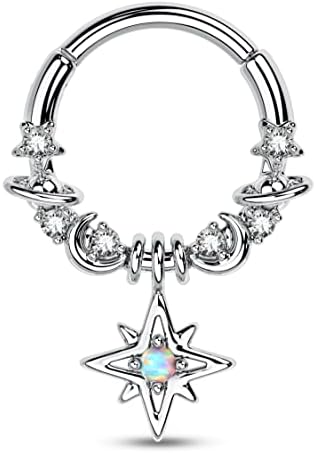
Pros
Some of the pros of surgical stainless steel are:It is easy to find and comes in various styles and designs. It is resistant to corrosion, rust, and scratches.It can be polished to a high shine or have a matte finish.
Cons
- Some of the cons of surgical stainless steel are:
- It may contain traces of nickel, which can cause allergies in some people.
- It may be too heavy or hard for some piercings or preferences.
- It may lose its luster over time or with exposure to chemicals.
Titanium:
This is a biocompatible metal that is safe for the body and has barely any nickel content. It is also strong, lightweight, and scratch-resistant.
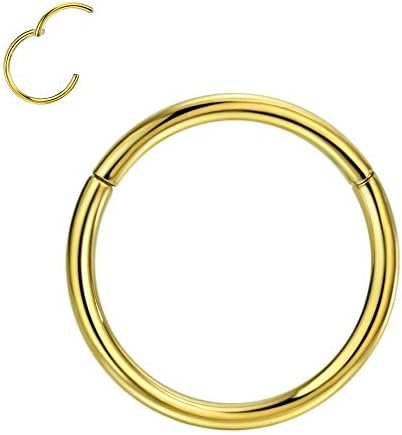
Pros
Some of the pros of titanium are:
- It is hypoallergenic and non-reactive, making it suitable for sensitive skin.
- It is lightweight and comfortable to wear.
- It can be anodized to create different colors and effects.
Cons
- Some of the cons of titanium are:
- It is more expensive than other metals.
- It may be harder to find or customize.
- It may be too rigid or stiff for some piercings or preferences.
Niobium:
This is a pure metal that is also hypoallergenic and biocompatible. It has a unique property that allows it to change colors when exposed to heat or electricity, creating a variety of hues and effects.
Pros
Some of the pros of niobium are:
- It is safe and gentle on the skin, making it ideal for new or healing piercings.
- It is flexible and easy to bend or shape.
- It can be colored to match your mood or style.
Cons
Some of the cons of niobium are:
- It is more expensive than other metals.
- It may be harder to find or customize.
- It may tarnish or fade over time or with exposure to chemicals.
Gold:
This is a precious metal that is valued for its beauty and elegance. It does not tarnish easily and offers plenty of sparkle. However, it is important to choose gold that is at least 14k or 18k, as lower karats may contain other metals that can cause allergies or infections.
Pros
Some of the pros of gold are:
- It is attractive and luxurious, making it a statement piece.
- It is durable and long-lasting, retaining its shine and value.
- It can be mixed with other metals to create different colors, such as rose gold or white gold.
Cons
Some of the cons of gold are:
- It is very expensive compared to other metals.
- It may be too soft or malleable for some piercings or preferences.
- It may cause allergic reactions in some people who are sensitive to other metals in the alloy.
Platinum:
This is another precious metal that is hypoallergenic and non-reactive. It has a brilliant shine and is very valuable. However, it is also heavier than other metals and may be harder to find.
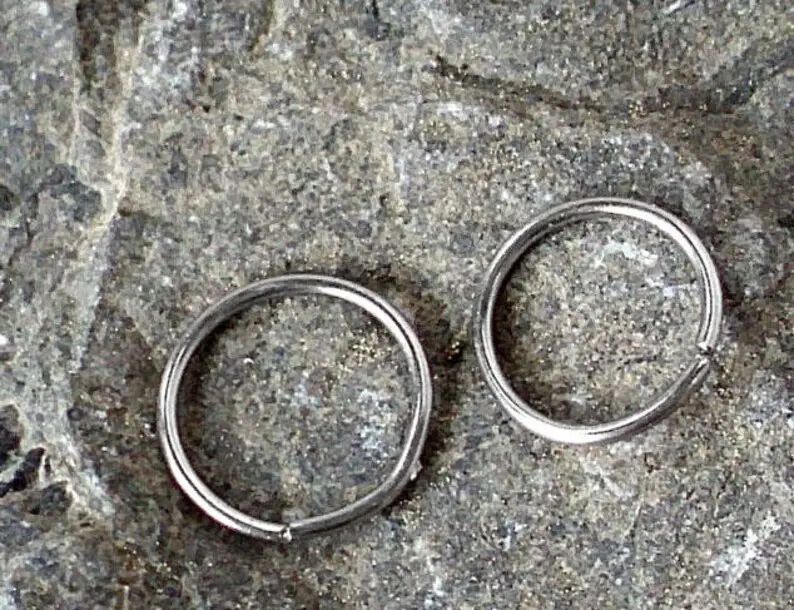
Pros
Some of the pros of platinum are:
- It is rare and exclusive, making it a unique choice.
- It is strong and durable, resisting scratches and corrosion.
- It has a bright white color that can complement any skin tone or style.
Cons
Some of the cons of platinum are:
- It is very expensive compared to other metals.
- It may be too heavy or dense for some piercings or preferences.
- It may be difficult to bend or shape without professional tools or skills.
Best Metal for Nose Rings – Comparison
| Metal | Pros | Cons |
|---|---|---|
| Surgical stainless steel | Hypoallergenic, affordable, versatile, durable | May contain nickel, maybe too heavy or hard, and may lose luster |
| Titanium | May contain nickel, may be too heavy or hard, and may lose luster | More expensive, harder to find or customize, too rigid or stiff |
| Niobium | Hypoallergenic, biocompatible, flexible, easy to bend or shape, colorable | More expensive, harder to find or customize, may tarnish or fade |
| Gold (14k or 18k) | Attractive, luxurious, durable, long-lasting, sparkly, mixable | Very expensive, too soft or malleable, may cause allergies |
| Platinum | Rare, exclusive, strong, durable, bright white color | Very expensive, too heavy or dense, difficult to bend or shape |
How to Choose the Best Metal for Your Nose Ring?
The best metal for your nose ring depends on several factors, such as:
- Your skin sensitivity: If you have sensitive skin or allergies to certain metals, you should avoid those that contain nickel, copper, zinc, or lead. Instead, opt for metals that are hypoallergenic and biocompatible, such as surgical stainless steel, titanium, niobium, gold, or platinum.
- Your piercing stage: If you have a new or healing piercing, you should choose a metal that is gentle on your skin and promotes healing. Surgical stainless steel and titanium are good options for this stage. Once your piercing is fully healed, you can experiment with other metals that suit your style and budget.
- Your personal preference: Ultimately, the best metal for your nose ring is the one that you like the most. Consider the color, finish, texture, weight, and shape of the metal and how it matches your skin tone, facial features, and personality.
How to Care for Your Nose Ring?
Regardless of the metal you choose for your nose ring, you should follow some basic care tips to keep it clean and healthy:
- Clean your piercing regularly: Use a saline solution or a mild soap to gently wash your piercing twice a day. Avoid alcohol, hydrogen peroxide, or harsh chemicals that can irritate your skin or damage your jewelry.
- Avoid touching or twisting your jewelry: This can introduce bacteria or dirt into your piercing or cause trauma or inflammation. Only touch your jewelry when cleaning it with clean hands.
- Change your jewelry carefully: If you want to switch your jewelry, make sure your piercing is fully healed and use sterile tools and jewelry. Avoid changing your jewelry too often or using low-quality jewelry that can cause infections or allergies.
Metals to Avoid for Nose Piercings
Not all metals are suitable for nose piercings, as some can cause more harm than good. Some of the metals you should avoid for nose piercings are:
- Nickel: This is a common metal that is often mixed with other metals to make alloys. However, nickel is also a common allergen that can cause skin reactions, inflammation, or infection in many people. Nickel can be found in some types of stainless steel, silver, gold, or plated metals.
- Copper: This is a metal that has a reddish-brown color and is often used to make bronze or brass. Copper can oxidize and tarnish when exposed to air or moisture, leaving a green or black residue on your skin or jewelry. Copper can also cause irritation or infection in your piercing.
- Zinc: This is a metal that is often used to make brass or other alloys. Zinc can also oxidize and tarnish when exposed to air or moisture, leaving a white or gray residue on your skin or jewelry. Zinc can also cause irritation or infection in your piercing.
- Lead: This is a metal that is toxic and harmful to the body. Lead can cause serious health problems, such as brain damage, nerve damage, or organ failure. Lead can be found in some types of pewter, tin, or plated metals.
- Plated metals: These are metals that have a thin layer of another metal on top of them, such as gold-plated or silver-plated. Plated metals may look attractive and cheap, but they are not durable and can wear off over time. This can expose the underlying metal, which may be of low quality and contain harmful substances, such as nickel, copper, zinc, or lead.
How to Find the Best Metal for Your Nose Piercing
Finding the best metal for your nose piercing may seem daunting, but it doesn’t have to be. Here are some tips to help you find the best metal for your nose piercing:
Do your research:
Before you get your nose piercing, do some research on the different types of metals and their pros and cons. You can use online sources, such as this guide, or consult with a professional piercer who can give you advice and recommendations.
Know your skin type:
If you have sensitive skin or allergies to certain metals, you should avoid those that contain nickel, copper, zinc, or lead. Instead, opt for metals that are hypoallergenic and biocompatible, such as surgical stainless steel2, titanium, niobium, gold, or platinum.
Choose quality over quantity:
When it comes to nose jewelry, quality matters more than quantity. You should invest in high-quality jewelry that is made from pure or implant-grade metals that are safe for the body and will last longer. You should also avoid cheap or low-quality jewelry that may break, bend, rust, or cause infections.
Try different options:
Once your piercing is fully healed, you can experiment with different types of metals and see which ones suit you best. You may find that you prefer one metal over another for its color, shine, weight, or shape. You may also want to have different metals for different occasions or moods.
Related
- What Size Needle is Used for Nose Piercing
- Septum Stretching
- Are nose piercings unprofessional?
- Nose Piercing on Big Nose Look
- Meaning of Nose Piercing
- The Best Piercing Ideas For Every Face Shape
- How to Put in Hoop Nose Ring
FAQs
Can I wear silver for my nose ring?
Silver is not a good metal for nose rings, as it can tarnish and oxidize when exposed to moisture or air. This can cause discoloration, irritation, or infection in your piercing. Silver can also stain your skin or clothing with a black or green residue.
What is the best size for a nose ring?
The size of your nose ring depends on the type and location of your piercing, as well as your personal preference. Generally, the gauge (thickness) of your nose ring should be between 18g and 22g, and the diameter (length) should be between 6mm and 10mm. You can measure your piercing with a ruler or a caliper to find the best size for you.
How long does it take for a nose ring to heal?
The healing time for a nose ring varies depending on the type and location of your piercing, as well as your aftercare and health. Generally, nostril piercings take about 2 to 4 months to heal, while septum piercings take about 6 to 8 weeks to heal. However, these are only estimates and your piercing may heal faster or slower depending on various factors.
Can I swim with a nose ring?
Swimming with a nose ring is not recommended, especially if your piercing is new or healing. Swimming can expose your piercing to bacteria, chlorine, salt, or other contaminants that can cause infection or irritation. If you have to swim with a nose ring, make sure to clean it thoroughly before and after swimming and avoid submerging your head in the water.
How do I know if my nose ring is infected?
Some signs of infection in your nose ring are redness, swelling, pain, heat, pus, bleeding, or foul odor. If you notice any of these symptoms, you should contact your piercer or a doctor as soon as possible. To treat an infection, you may need to use antibiotics, anti-inflammatory drugs, or warm compresses. Do not remove your jewelry unless instructed by a professional, as this can trap the infection inside your piercing and make it worse.
Resources
- How To Reopen A Closed Nose Piercing
- Double Nose Piercing
- Nasallang Piercing
- Rhino Piercing
- High Nostril Piercing
- Mantis Piercing
- Nose Bridge Piercing
- Is Titanium Good For Nose Piercings
- Foods To Avoid After Nose Piercing
- What Gauge Is A Nose Piercing
- Types of Nose Rings
- New Piercing Jewelry
- Jewelry for healed Piercing

Camila Luna is a passionate jewelry enthusiast and content creator at Miami Jewelry Co. With a focus on providing high-quality, Miami-style jewelry, Camila and her team specialize in a wide range of jewelry that includes bracelets, necklaces, earrings, and more
